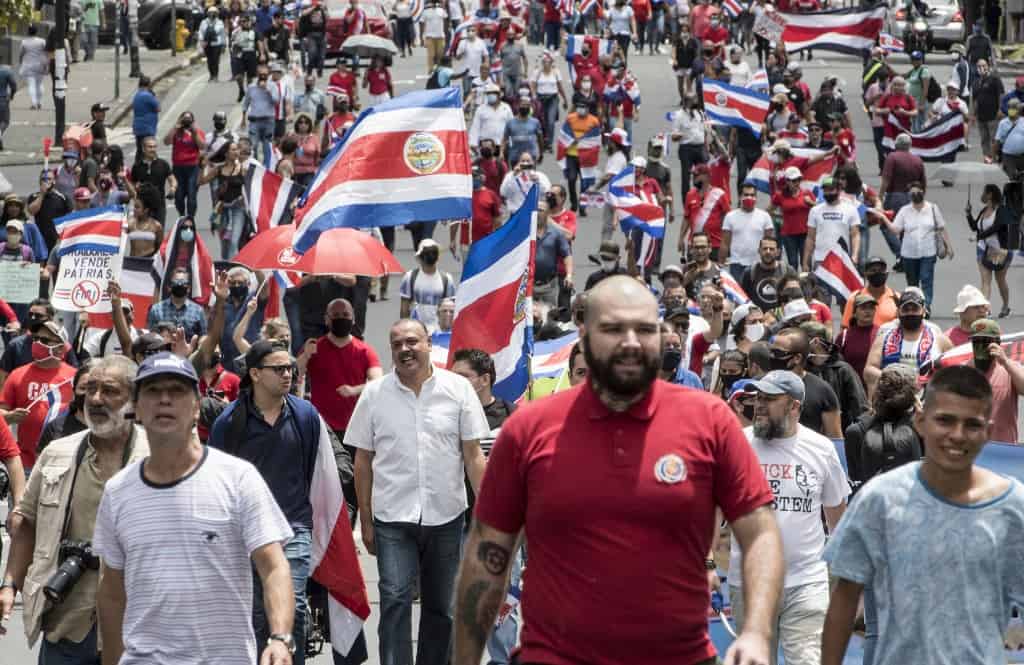Costa Rica is sliding into a state of structural violence fueled by political clashes, social division, and weakening institutions, according to a new National University (UNA) report released last week. The study paints a grim picture of a nation facing escalating tensions and a growing crisis that threatens its long-standing stability.
The report points to President Rodrigo Chaves’s confrontational approach as a key driver. His ongoing disputes with Legislative Assembly President Rodrigo Arias and institutions like the Supreme Electoral Tribunal (TSE) have deepened polarization. Chaves’s frequent use of vetoes to block legislation and his participation in a protest against the Attorney General—joined by his cabinet—have raised alarms about eroding checks and balances. “These risks are undermining the separation of powers,” said sociologist Carlos Carranza, a lead author of the report.
Beyond politics, the report highlights a shift toward neoconservative policies impacting human rights. Costa Rica’s agreement to accept migrants deported from the U.S. lacks clear protocols, leaving vulnerable groups without adequate support. A decree limiting state commitment to the Sustainable Development Goals (SDGs) and the 2030 Agenda, long a cornerstone of Costa Rican policy, has drawn criticism for abandoning global cooperation.
Socially, structural violence is manifesting in daily life. Femicides have surged, with 17 cases reported this year, underscoring the government’s failure to bolster gender-based protections. “There’s little effort to strengthen victim support or address gender violence,” the report states. Rising inequality and distrust in institutions further fuel social fragmentation, with 61% of Costa Ricans expressing dissatisfaction with democracy, according to recent Latinobarómetro data.
The report also notes a decline in dialogue mechanisms. Historically, Costa Rica relied on consensus-building to navigate crises, but current political rhetoric—described as “symbolically charged with tension”—is dismantling these traditions. Social media analysis from the University of Costa Rica shows that 70% of online political discourse in 2025 is polarized, amplifying divisions.
Economic pressures compound the crisis. Despite a 5.1% GDP growth in 2024, inequality is rising, with the Gini coefficient climbing to 0.49, per the World Bank. Unemployment hovers at 8.3%, disproportionately affecting youth and rural communities, fueling discontent. The government’s push for austerity measures, including cuts to public services, has sparked protests, with over 20 demonstrations recorded in San José this year.
Experts warn that without urgent action, the trajectory will worsen. Recommendations include restoring institutional dialogue, strengthening human rights protections, and addressing gender violence through robust policies. The report calls for a national summit to rebuild consensus, though political will remains uncertain. “If the President continues this combative stance, instability will dominate,” Carranza said.






